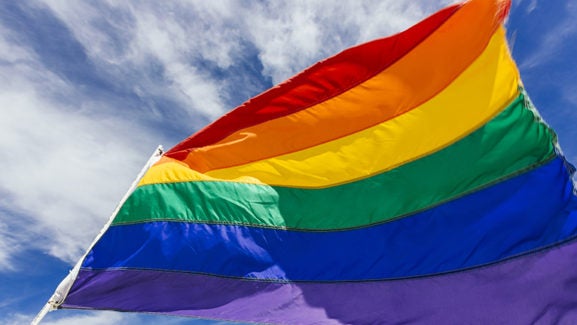
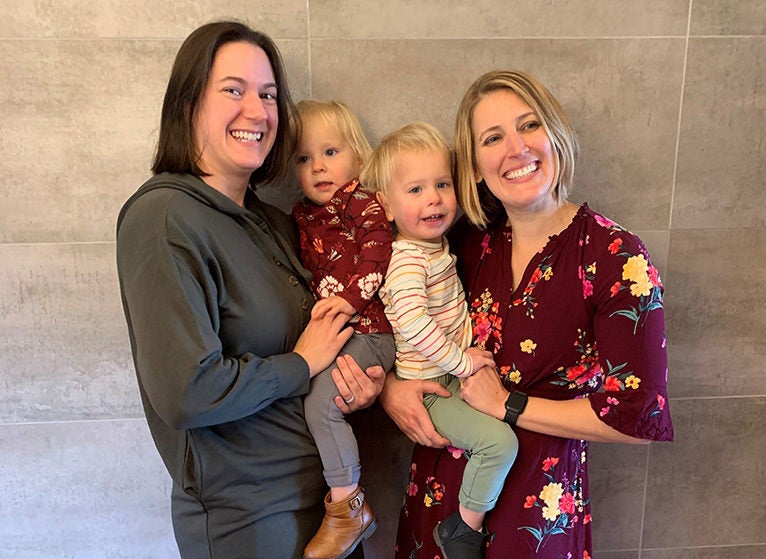
Haley Stephens (left) and Sara Groff Stephens (right) with their two daughters (contributed)
Married Faculty Members Reflect on Pride Months Past & Present
As a nation, we’ve come a long way in our acceptance of non-heteronormative relationships since Pride celebrations began in the 1970s. For those in the LGBTQ+ community, the attitude shift toward inclusivity could not come soon enough. Connect spoke to UVA Children’s clinical social worker Sara Groff Stephens, PhD, and pediatric psychologist Haley Stephens, PhD, about their experience as a same-sex married couple and how we can all be better allies for our queer patients, friends, and family members.
How did you meet?
Sara: We met through mutual friends. We were both in grad school in Tallahassee.
Haley: She was getting a PhD in social work and I was getting mine in psychology. Our friends were from totally different worlds from ours; they were a little more alternative. So I didn’t think she’d be someone I’d like to date. I thought maybe we’d be friends. But we soon figured out we had a lot in common. That was 2013.
Sara: We fell in love quickly. We met in the fall and got engaged within a year. We were married in 2015.
Were you impacted by the laws limiting same-sex marriage?
Haley: Interestingly, same-sex marriage was not nationally legal at the time. But Florida of all states had legalized it in January 2015. We got married in April 2015.
Sara: It was halfway through our wedding planning when we realized we didn’t have to go to D.C. to get married. We could have the wedding and a celebration at home in Florida. Although, Haley is listed as the husband on our marriage certificate because the documents hadn’t been updated yet.
What brought you to Charlottesville?
Sara: After we left Florida, we went to Portland, Oregon, for Haley’s internship and post-doc. Then, in 2018, we both got jobs at UVA and moved to Charlottesville.
Haley: It was unusual to find two faculty positions that suited us well, so it was kind of a no-brainer. I did my undergrad at UVA, so I knew Charlottesville, and my parents are in Blacksburg.
Sara: My parents are in Florida, so we wanted to come back to the East Coast.
Do you feel Charlottesville is an inclusive community?
Sara: I do think Charlottesville is inclusive. Maybe not compared to Portland, but I grew up in Florida. So compared to Tallahassee, absolutely. It was really important for us to be in an inclusive community because we wanted to have children. So we had conversations about what we could handle and what we wanted our kids to experience. We were very intentional about wanting to live in the city limits of Charlottesville. Because our family looks like it does, we wanted to live somewhere that might be more supportive and have a more progressive attitude toward the LGBTQ+ community.
Tell us about your family.
Haley: We have twin girls. They are 2 ½.
Sara: Haley carried our girls. And I’m pregnant with number three — also a girl – due in August.
What does Pride Month mean to you and your family?
Haley: Pride is a nice opportunity for us to be proud of this aspect of who we are. Because anyone who is part of the LGBTQ+ community has gotten some messaging that this part of us is undesirable or strange. Some people just tolerate us or worse. This is our chance to celebrate this part of ourselves and say we like this about ourselves.
Sara: I was thinking back on my first Pride month. I think it’s gotten bigger and bigger every year. My first one was probably over 10 years ago in Tallahassee and it was small and mostly just LGBTQ+ people there. There weren’t a lot of straight allies. Of course, Portland Pride was awesome — I remember feeling really emotional there because it was such a huge celebration. It was the first time I saw so many queer individuals and straight allies together in one place celebrating love and inclusivity.
Haley: We love our straight, cisgender allies so much. I’m always heartened to see such a huge turnout at Pride by friends and family members. It’s really a family affair now with all kinds of families coming together to celebrate.
Sara: We’re excited to celebrate with our kids this year when Charlottesville has their larger event in September. Having some representation of families that look like theirs is really important to us. We got the twins Pride T-shirts and a onesie for the baby, so we’ll be out there with rainbows on.
How do you advocate for others in your community?
Sara: I heard someone say that the best advocacy is just being a queer couple out in public, showing love and our family. We’ve been more intentional about doing that.
Haley: Professionally, we maintain neutrality. We don’t mention it to our patients, but when we’re out in the world, socially, we live our lives openly.
What does inclusivity look like to you?
Haley: In a way, inclusivity is just letting us live our lives and not batting an eye at that.
Sara: One thing I noticed living in Portland was the lack of attention we got as a same-sex couple. I appreciated that. In Florida, if you’re holding hands, they may give you not-so-nice looks or be overly into it.
Haley: People would be like: ‘Oh, you guys are so cute!’ But if I was holding hands with a man, they’d never say that.
Sara: Inclusivity might be as simple as an introduction without any awkwardness or hesitation. You know, ‘This is my wife and these are our girls’ to be met with just: ‘It’s nice to meet you. This is my husband or wife.’ That feels inclusive to me.
With kids, it’s nice when others are respectful of how our family works. The kids’ daycare asked us our names: I’m mommy. She’s mama. Even stuff written on documents — parent, caregiver, spouse rather than heteronormative language — feels good to me. It really runs the gamut. After our twins were born at UVA, the team was really great. I induced lactation, which was a new thing for the hospital. But the team was very inclusive; I got to meet with the lactation consultant who was very supportive of me. They didn’t cut me out because I wasn’t the birth mom.
You both work with children and teens. Has your experience as members of the LGBTQ+ community impacted your practice?
Haley: I approach patients in a certain way not because I’m queer, but because I think it’s how a good behavioral clinician should practice. I use affirming language. I introduce myself in a certain way. I say: ‘I use she/her pronouns.’ Then I ask their pronouns.
Sara: Language is really important. And we don’t make assumptions. We ask, ‘Do you like guys, girls, both, or neither?’. I think many of our teens really appreciate that. Those were never questions we were asked as teens. It was assumed we were heterosexual.
I’m also very intentional about not assuming kids are there with mom or dad, but I ask them: ‘Who is here with you today?’ Many kids are cared for by aunts, uncles, foster parents, grandparents.
How can we be more inclusive when caring for this patient population?
Haley: I think we’re doing a good job. Of course, we can always do more. I’d like to see more specialty care for gender-expansive and gender non-conforming individuals. I’d like to see more training of staff at all levels of care on how to talk to patients from this community, how to use gender-affirming language and to be trauma-informed when examining someone’s physical anatomy.
I am part of an initiative at the Health System that began a few years ago to try to build a physical clinic for gender health. It’s a collaboration between all providers in the Health System who provide gender-expansive medical care. People in behavioral health like myself, family medicine, pediatric and adult endocrinology, plastic surgery, speech therapists who practice vocal training, dermatologists for hair removal. Our hope is to have a one-stop-shop where patients of all ages can seek affirming, gender-specific medical care without having to go to each discipline separately.
Sara: I’d like to see more signage that this is a safe space. It’s Pride, so maybe a big rainbow banner in the atrium of the Battle Building. A lot of providers wear rainbow lanyards or have a pin. That’s so wonderful because as a person in this community, I love seeing the rainbow. You always wonder how people are going to respond, and this is a clear sign — it indicates to patients that we’re accepting.
In case you missed it

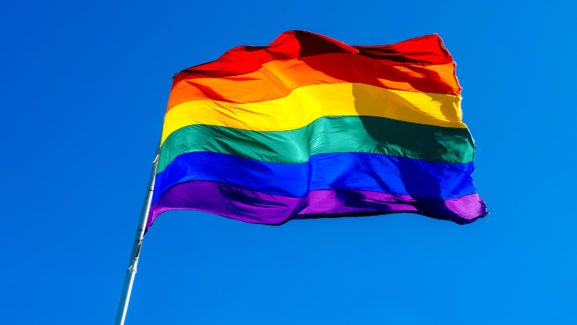
Latest News

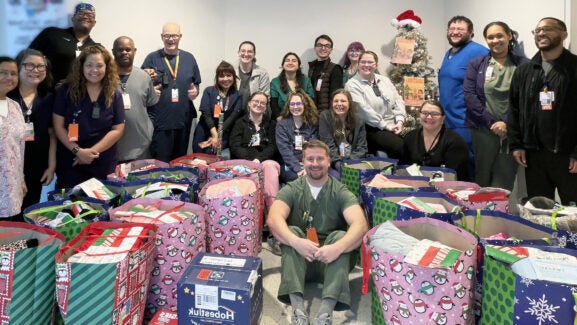
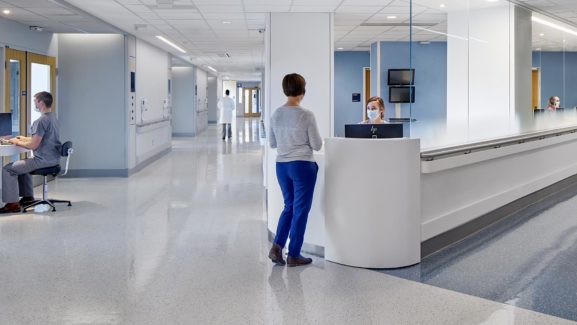
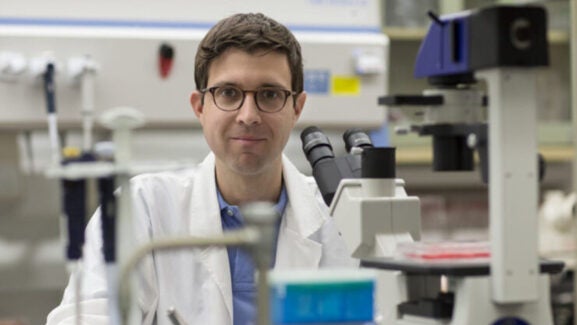
We LOVE this beautiful family, and we are so fortunate to have Haley and Sara on our team at the UVA Teen and Young Adult Health Center!
Dr. Haley Stephens is a superstar who has been a wonderful resource for pediatric gastroenterology patients at UVA. these last several several years. Proud to work with her!
Thank you for sharing your story with everyone. I love the initiative’s that Haley is wanting to bring to UVA. I feel that with the CBL’s that are presented to us are helpful to understand the “he/she/their/them” pronouns. There is a lot of judgement in this world and feel that we could all use a rainbow in our lives. I think Haley is a great provider and have worked with her patients in the past and currently. I always hear about how amazing she is and this article you can see her heart on her sleeve.
Thank you again for sharing <3
We are so lucky to have you both here at UVA with us! Thank you so much for sharing your story and your lives!